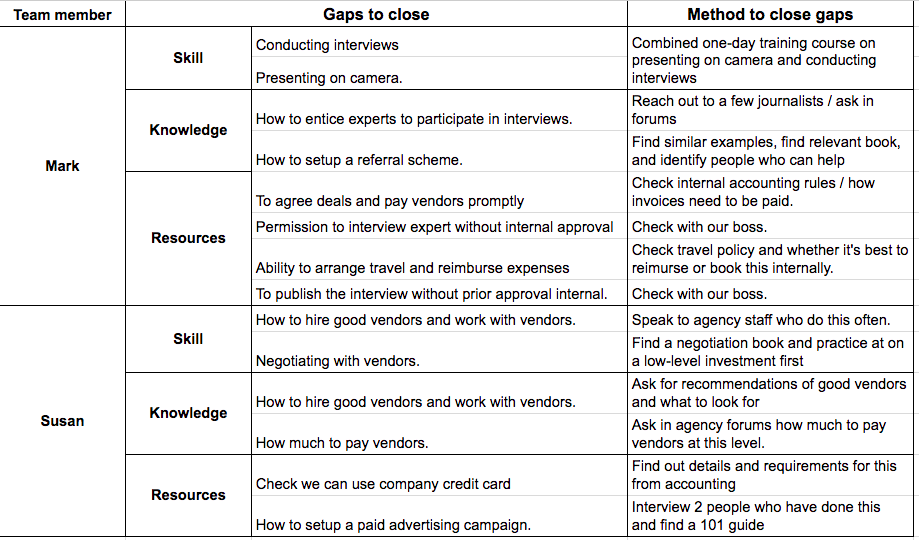Have you noticed something interesting about most filmed interviews by non-professionals (e.g. people that do not work in the media)? The non-professionals looks terrified. They are nervous, wooden, shifty, and look scared of the camera. This undermines the entire interview.
In fact, it undermines the entire tactic… perhaps even a huge percentage of the strategy.
Can you imagine going through all this effort, only for the interview to be ruined by the presenter?
This is a skills gap. The presenter has likely never been on camera before. They do not know the best body language to adopt, where to look, how long to look at the camera, what to do if they become uncomfortable, etc. They might not know that they need to exaggerate their personality to match the setting. This results in a wooden, underwhelming interview.
Along with knowledge gaps and resource gaps, skill gaps are one of the three gaps you need to fill before you execute a tactic. Too often, people overestimate their abilities and believe they can do something they have never done before really well. This is an arrogant (and, unfortunately, common) mistake to make.
You can correct this by identifying your skill gaps and taking action to close them.


Share
Facebook Facebook
Twitter Twitter
LinkedIn LinkedIn
Google Plus Google+